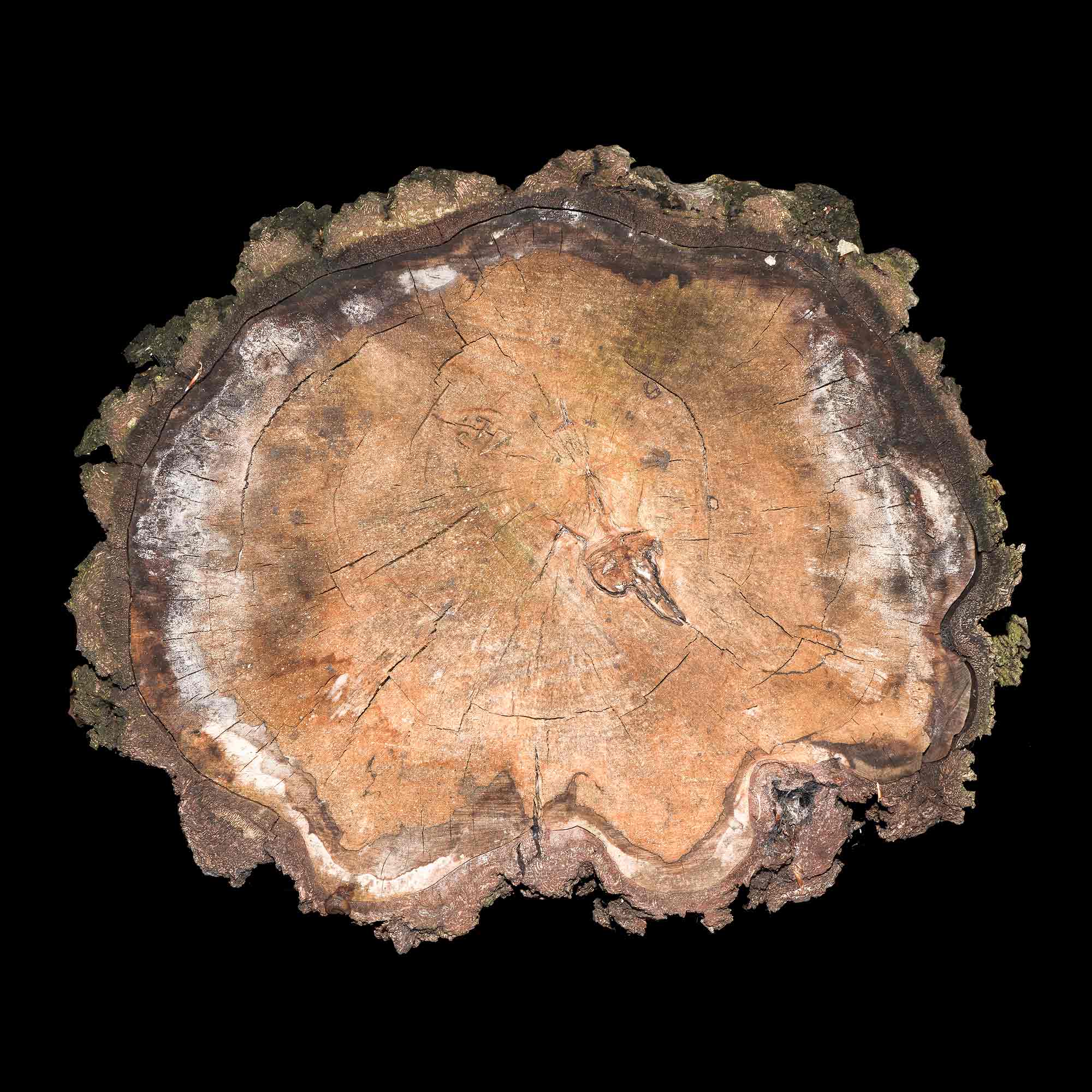︎Dostrzegam jedynie fragmenty
Człowiek współczesny odczuwa silną potrzebę definiowania, nazywania i tłumaczenia otaczającego go świata. Robi to mimo świadomości, że w świecie nie ma żadnej uniwersalnej stałości. Oglądając naturę rozczłonkowuje ją i szufladkuje jej fragmenty. Dzieli ją mię dzy innymi na królestwa, gatunki, tkanki i komórki. Na ironię zakrawa to, że im większą liczbą nazw operuje, tym bardziej traci świadomość własnego zanu rzenia w naturę. Fragmentaryzacja rzeczywistości rozmywa pełen jej obraz. Może ona prowa dzić do iluzji, że człowiek znajduje się poza naturą i obserwuje ją „z zewnątrz”. Wtedy zaczyna również wierzyć, że pełne (rozumowe) poznanie jest na wycią gnięcie ręki. Najwyższy czas, żeby dowartościować poznanie poprzez czucie, a nie tylko rozumienie.
Człowiek współczesny odczuwa silną potrzebę definiowania, nazywania i tłumaczenia otaczającego go świata. Robi to mimo świadomości, że w świecie nie ma żadnej uniwersalnej stałości. Oglądając naturę rozczłonkowuje ją i szufladkuje jej fragmenty. Dzieli ją mię dzy innymi na królestwa, gatunki, tkanki i komórki. Na ironię zakrawa to, że im większą liczbą nazw operuje, tym bardziej traci świadomość własnego zanu rzenia w naturę. Fragmentaryzacja rzeczywistości rozmywa pełen jej obraz. Może ona prowa dzić do iluzji, że człowiek znajduje się poza naturą i obserwuje ją „z zewnątrz”. Wtedy zaczyna również wierzyć, że pełne (rozumowe) poznanie jest na wycią gnięcie ręki. Najwyższy czas, żeby dowartościować poznanie poprzez czucie, a nie tylko rozumienie.
︎I only see snippets.
Contemporary person feels a strong need to define, name and explain the world around him/her. He/she does this despite the awareness that there is no universal constancy in the world. Watching nature, he/she dismembers it and pigeonholes its bits and pieces. He/she divides it into kingdoms, species, tissues and cells, among others. It is ironic that the more names he/she uses, the less is he/she aware of his/her immersion in nature. The fragmentation of reality blurs its full picture. This can lead to the illusion that human is outside nature and observes it "from outside". Then he/she also begins to believe that full (rational) knowledge is at hand. It's high time to value cognition through feeling, not just understanding.
Contemporary person feels a strong need to define, name and explain the world around him/her. He/she does this despite the awareness that there is no universal constancy in the world. Watching nature, he/she dismembers it and pigeonholes its bits and pieces. He/she divides it into kingdoms, species, tissues and cells, among others. It is ironic that the more names he/she uses, the less is he/she aware of his/her immersion in nature. The fragmentation of reality blurs its full picture. This can lead to the illusion that human is outside nature and observes it "from outside". Then he/she also begins to believe that full (rational) knowledge is at hand. It's high time to value cognition through feeling, not just understanding.


